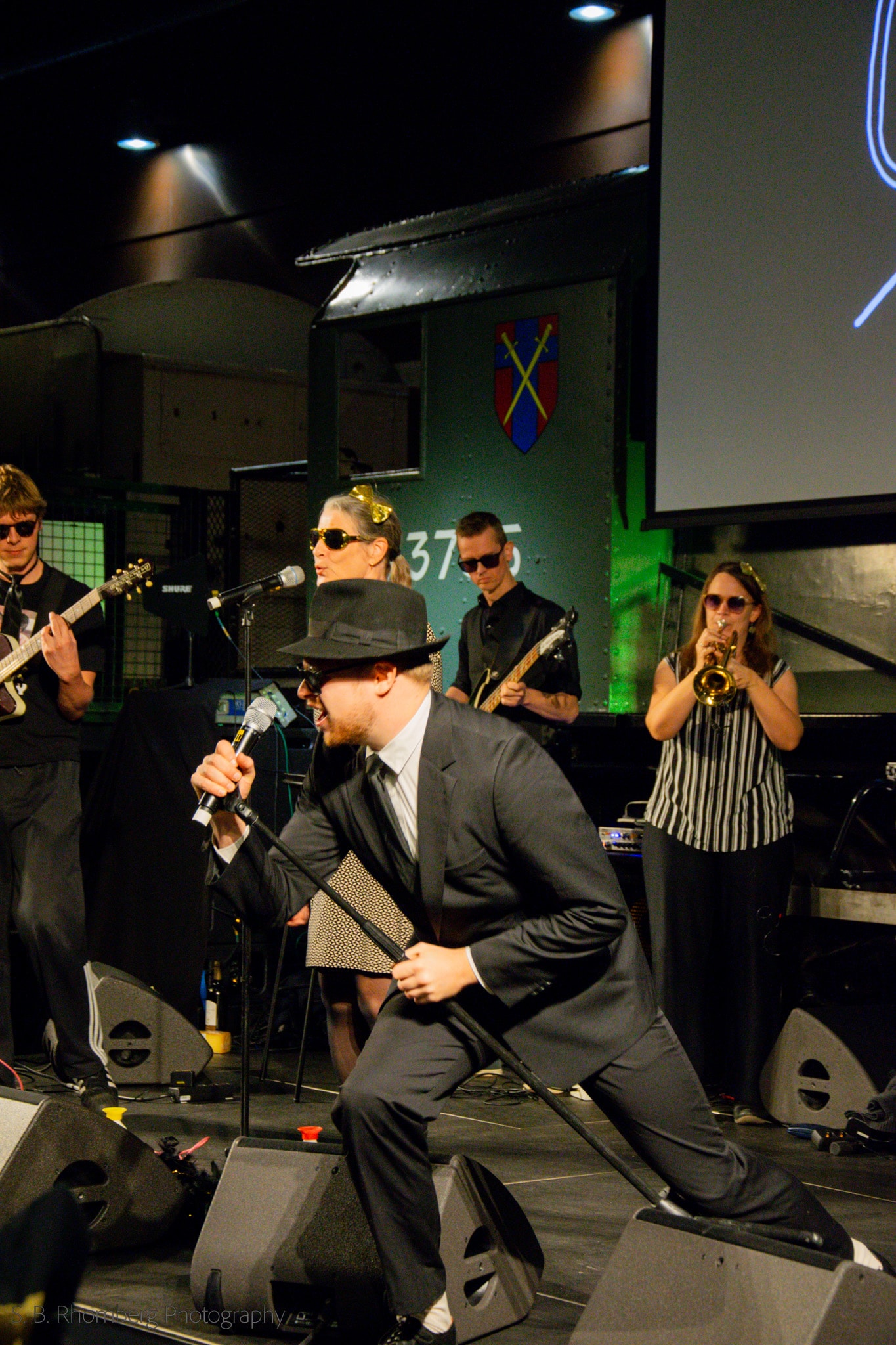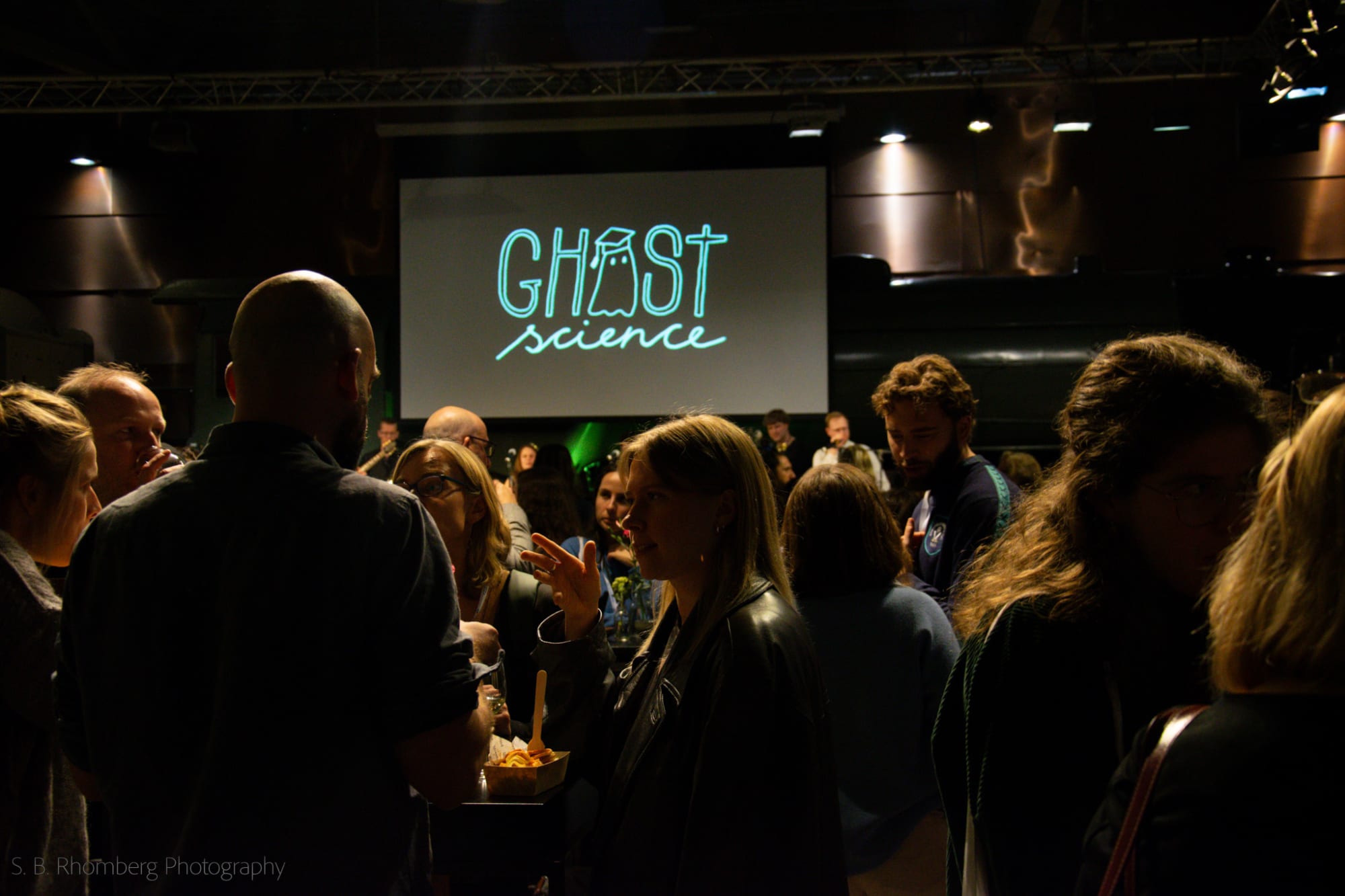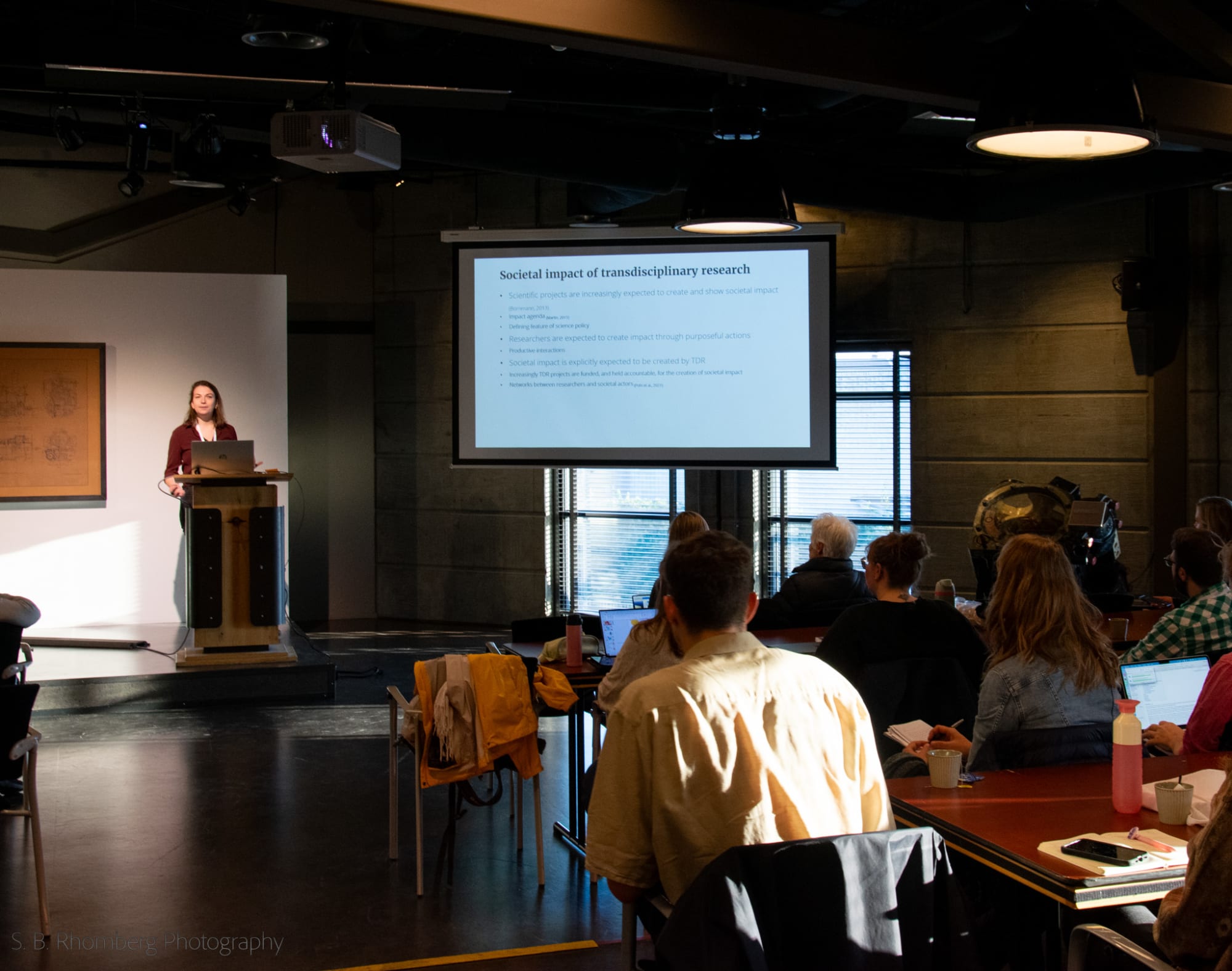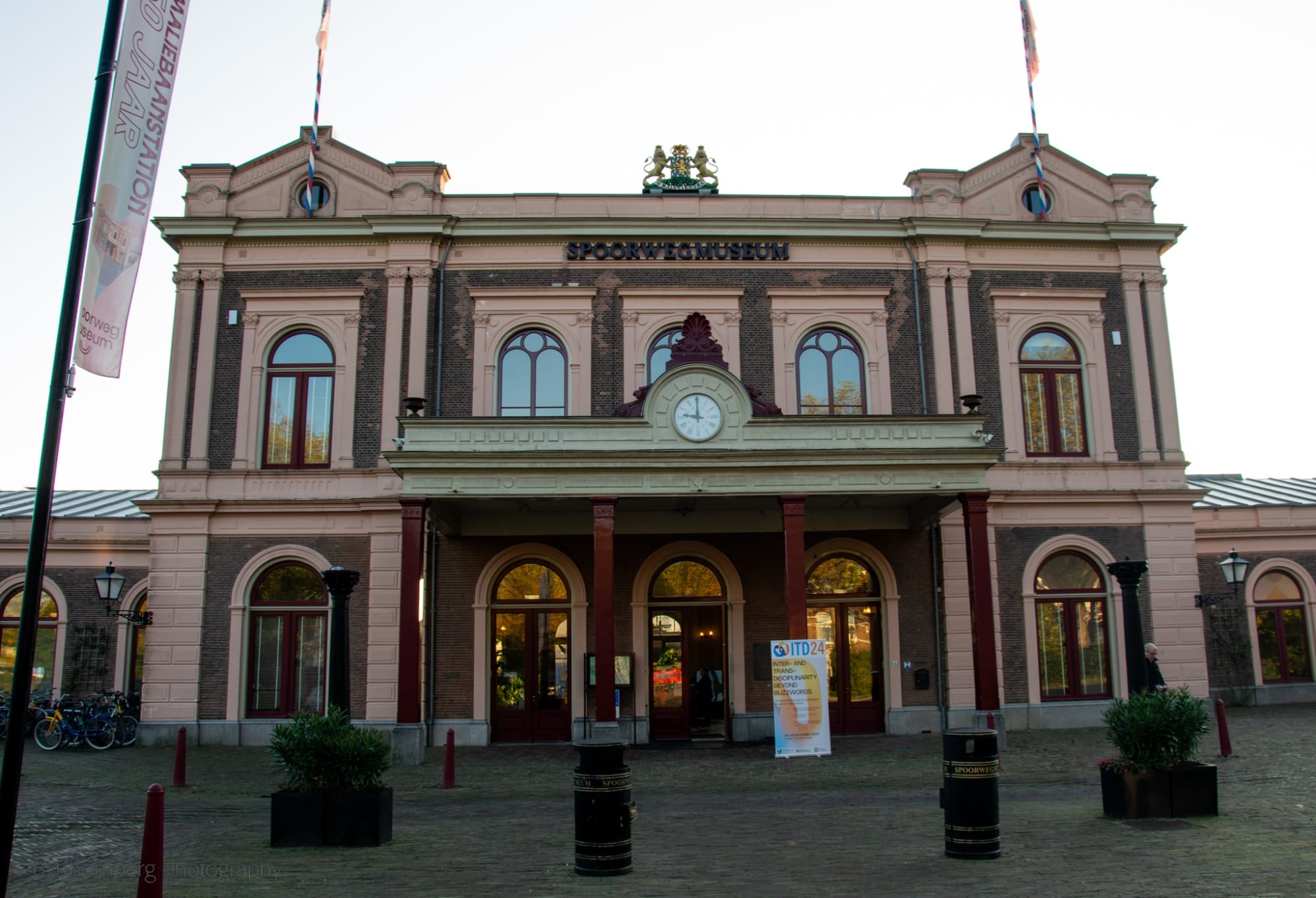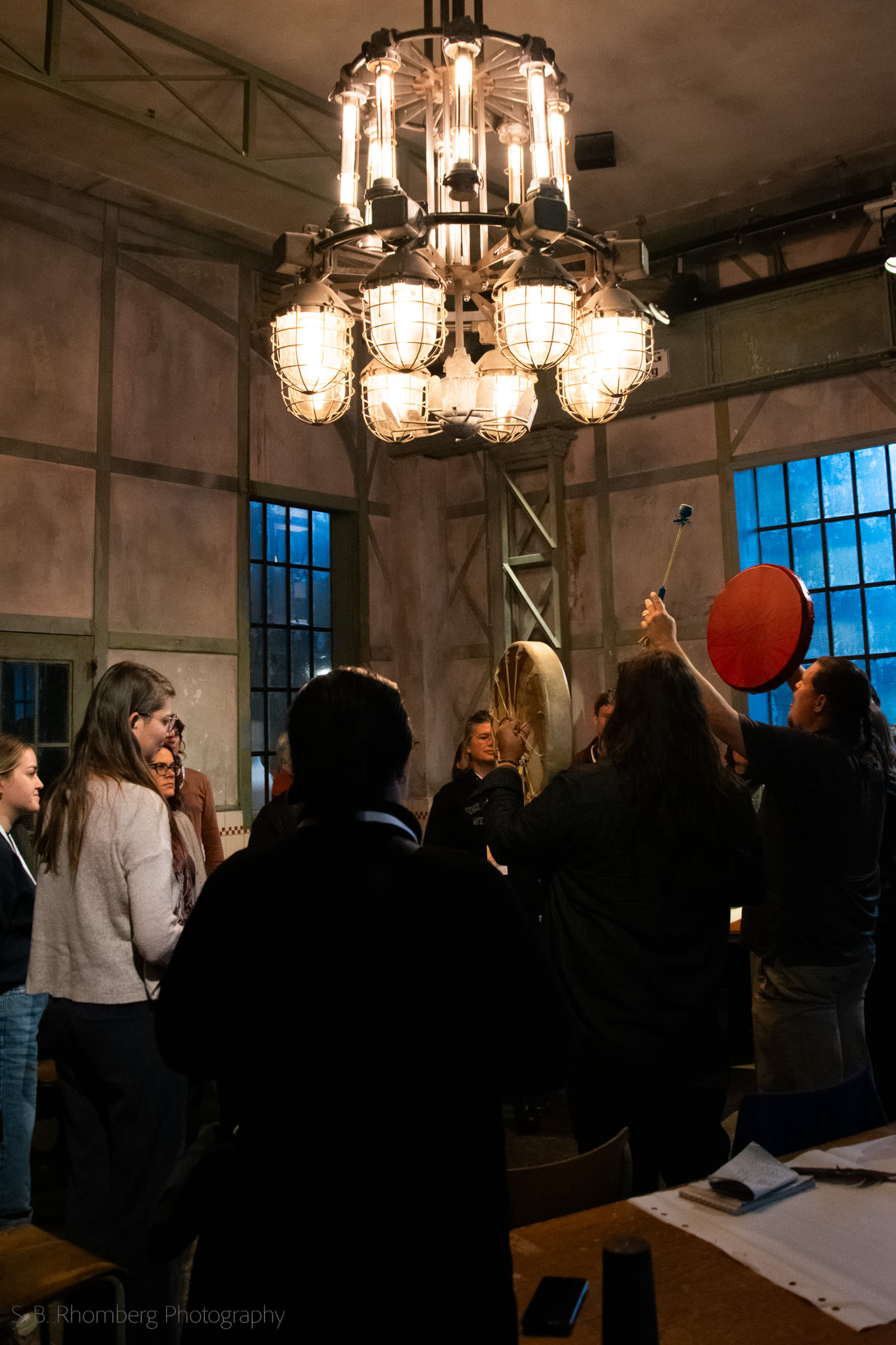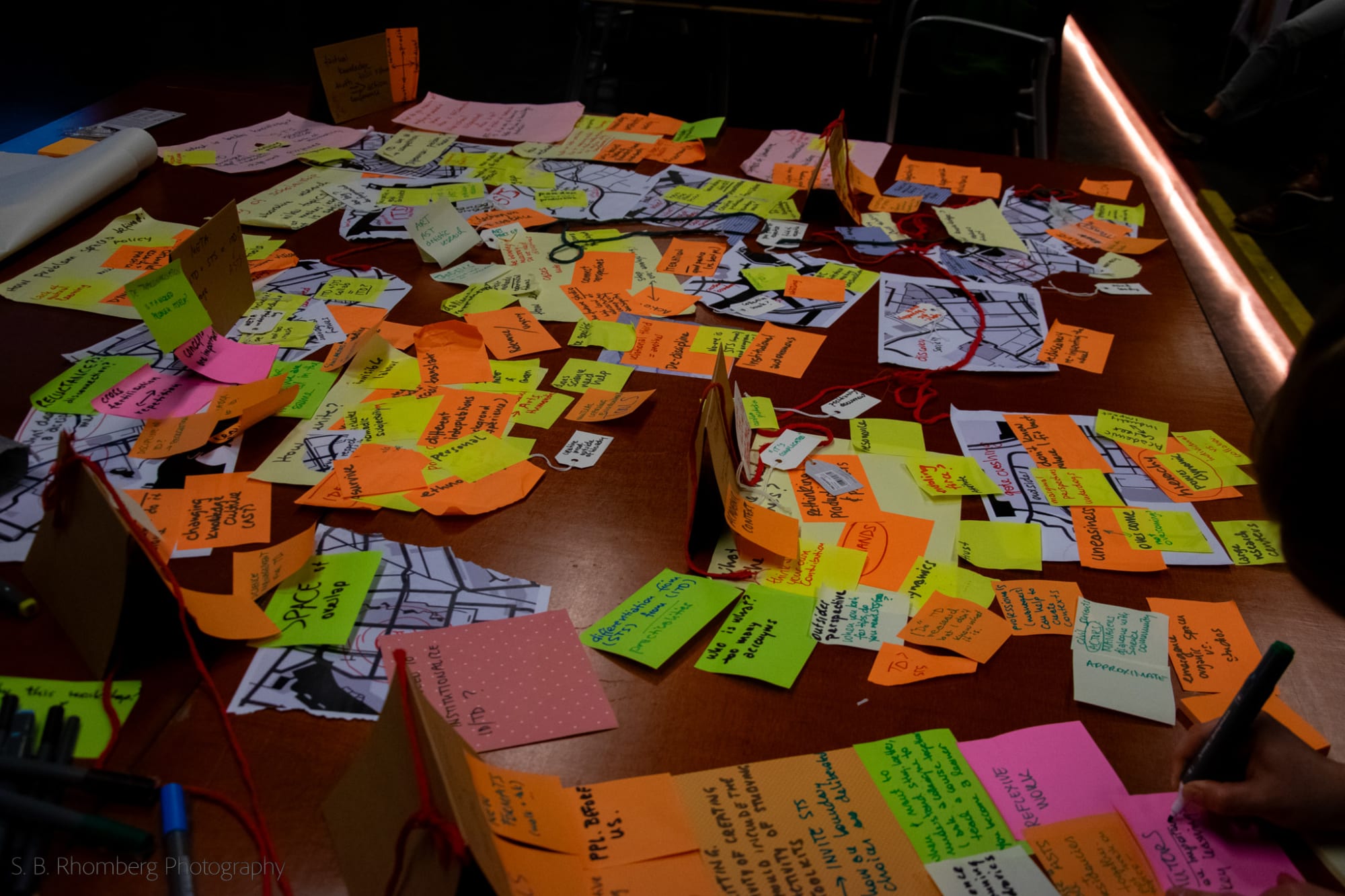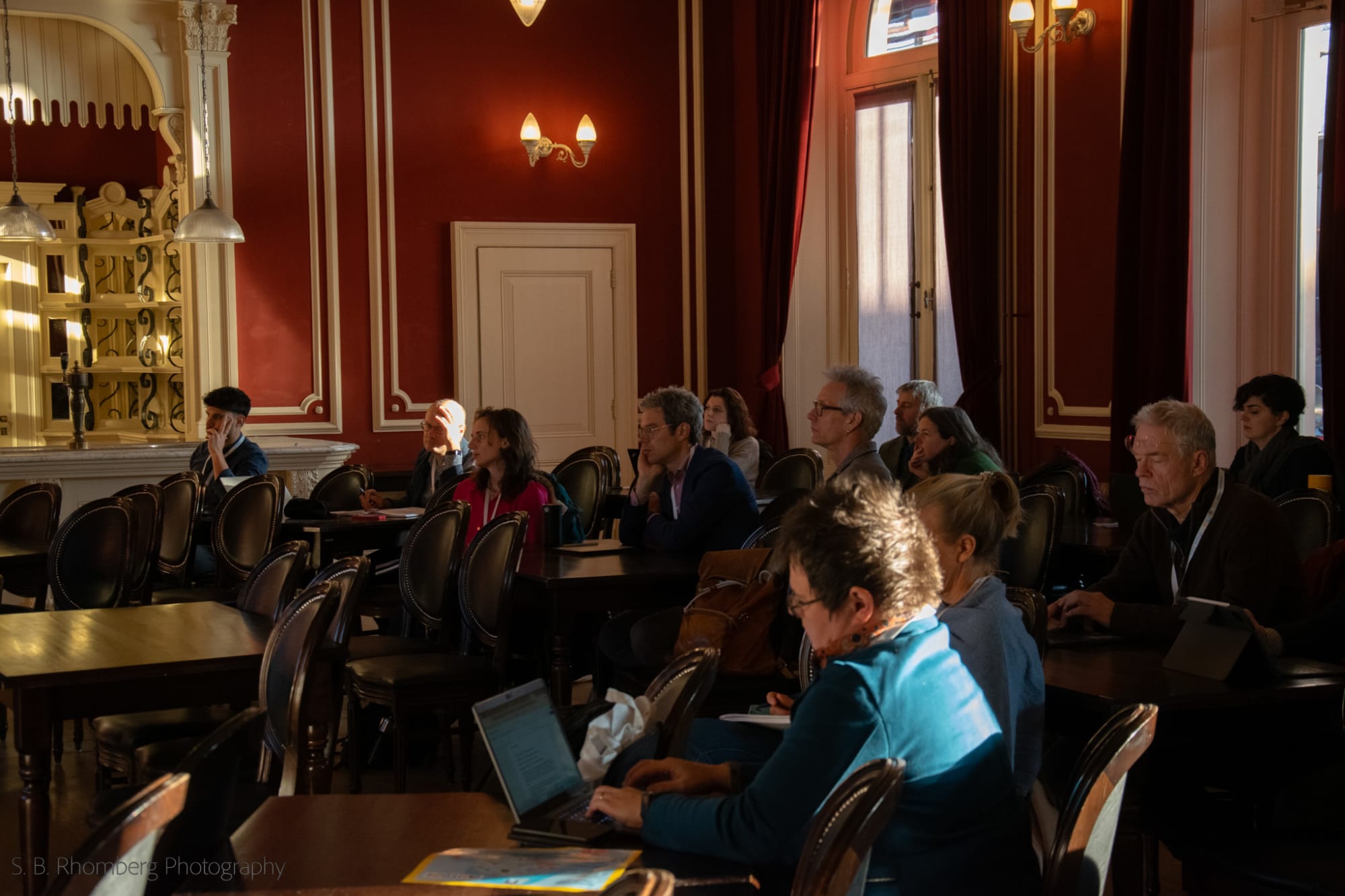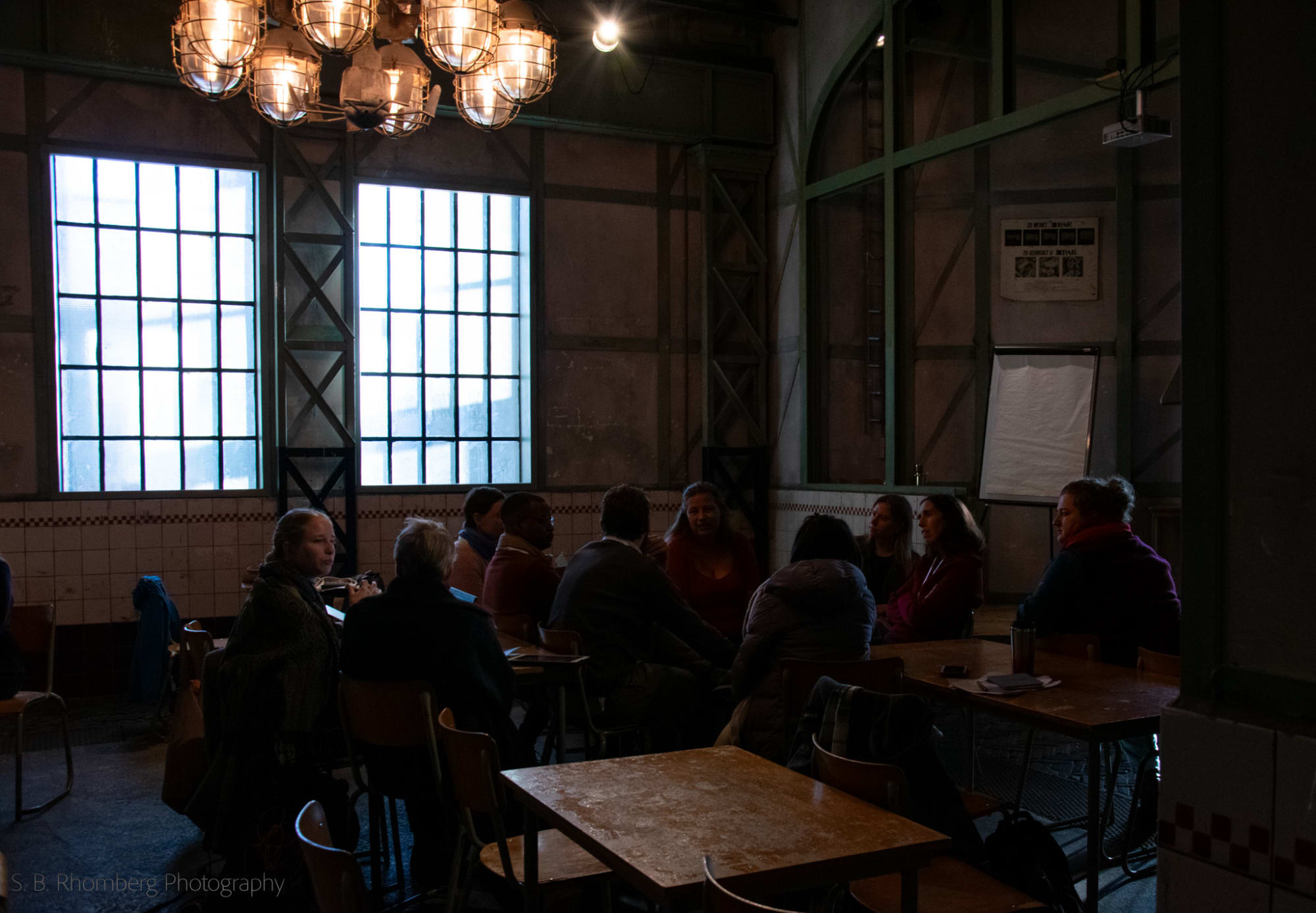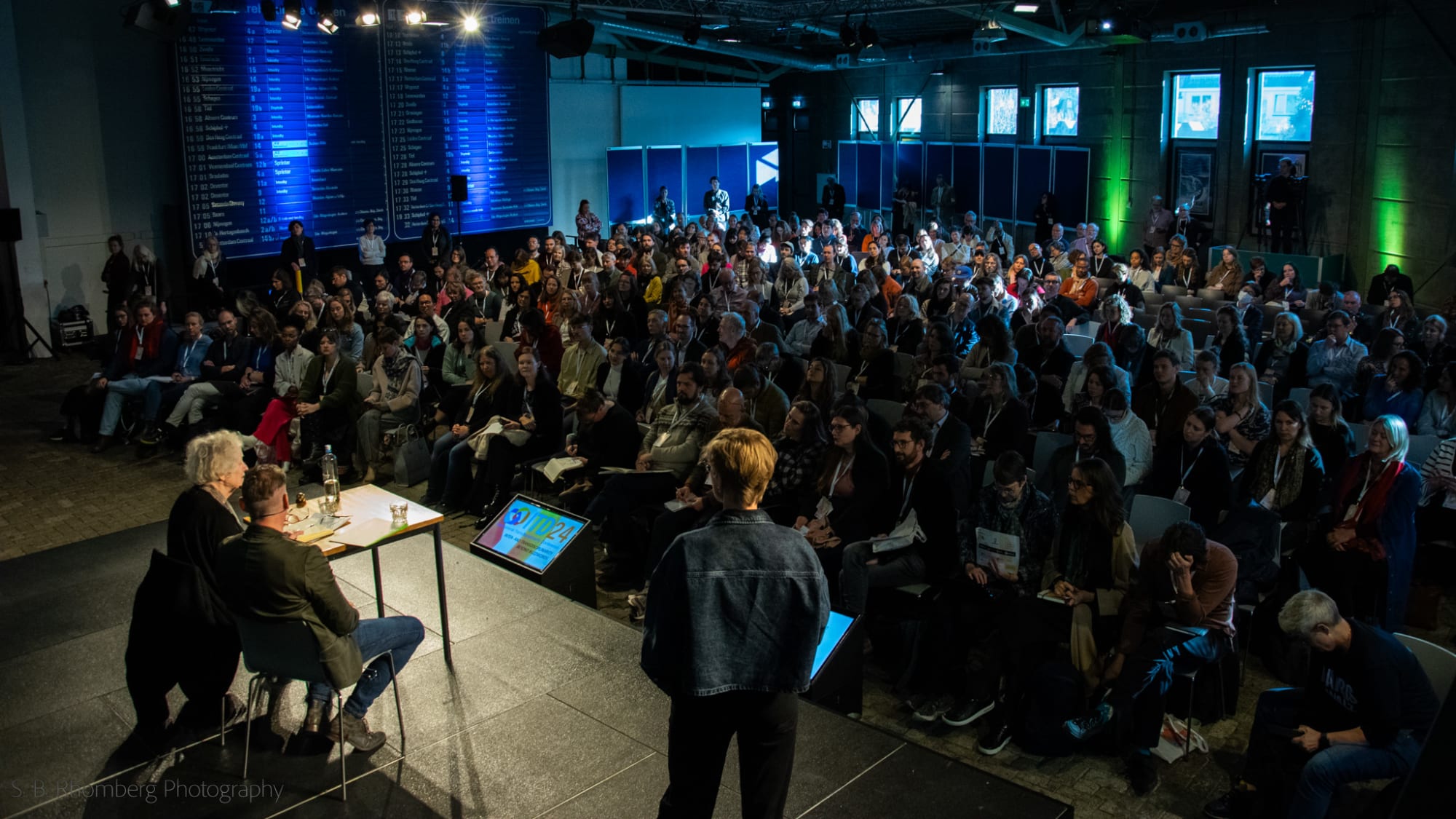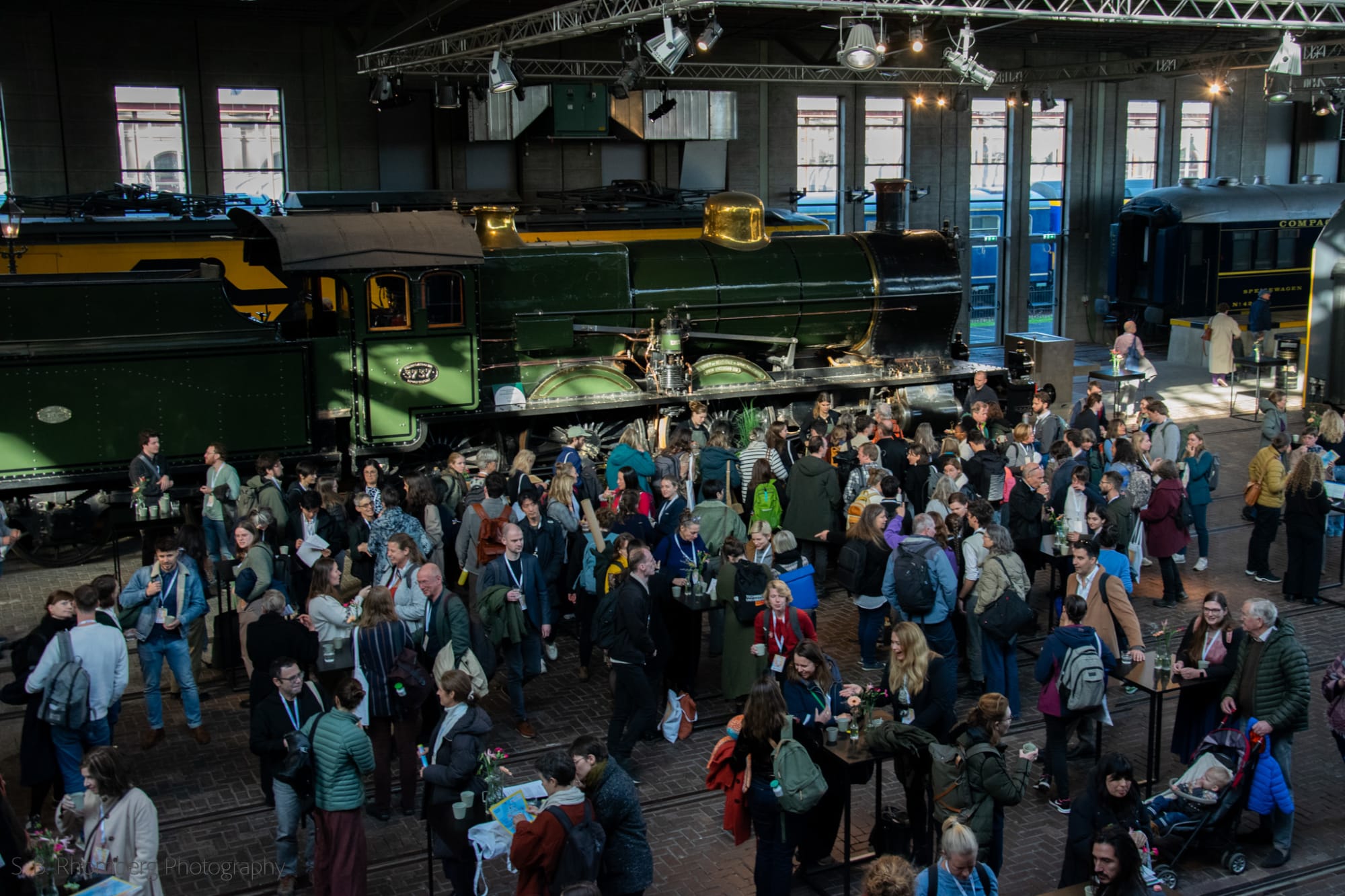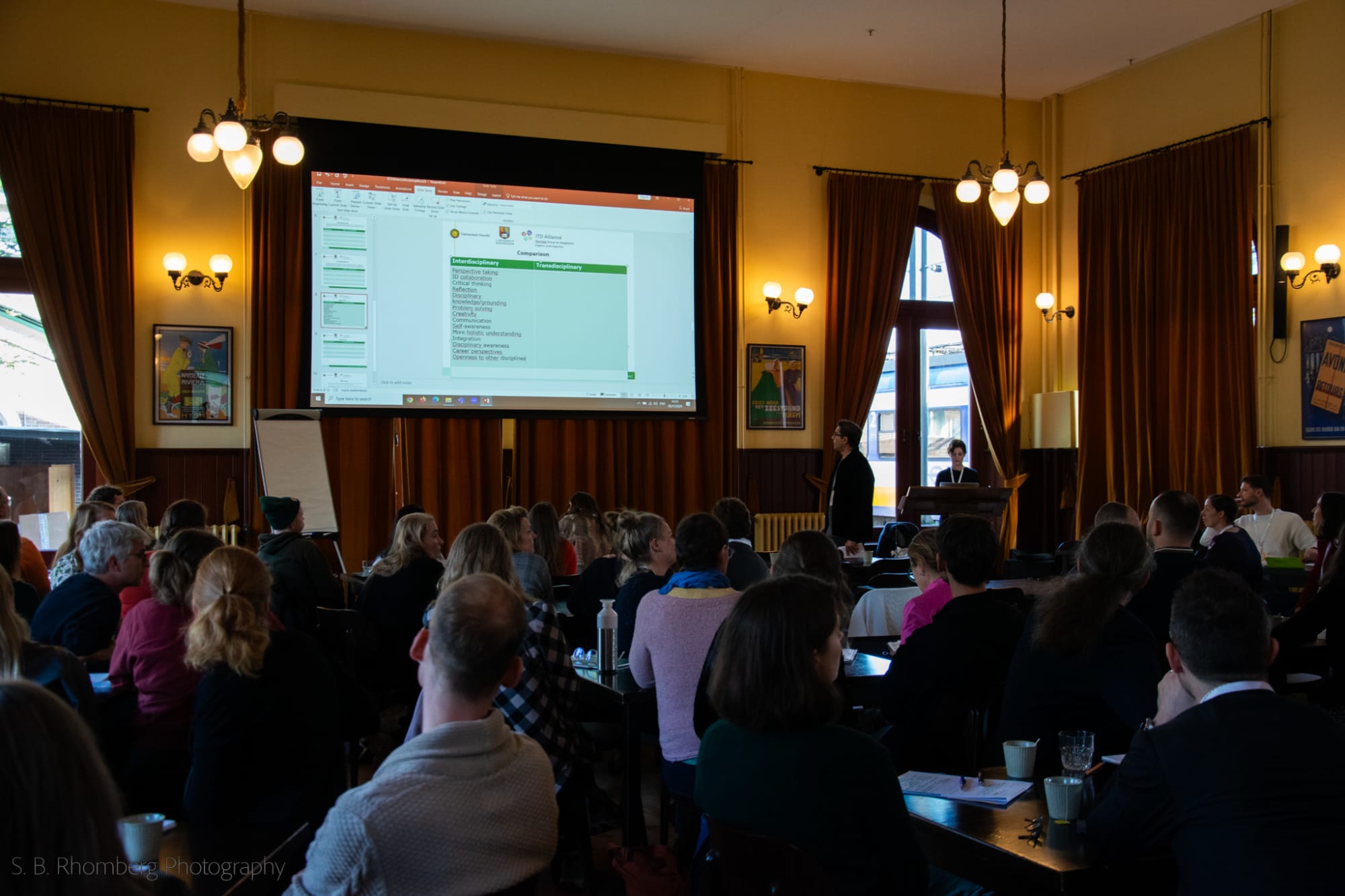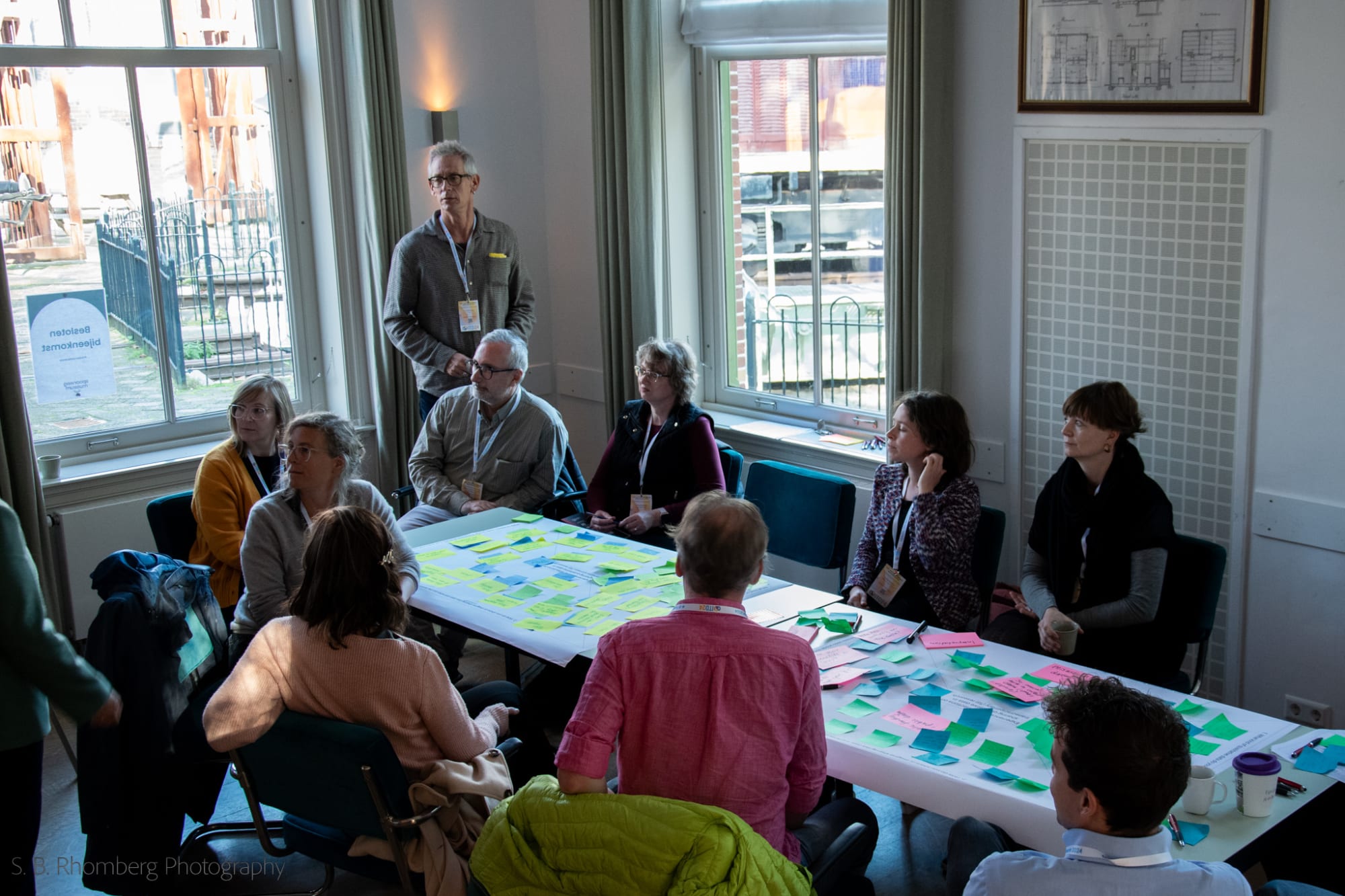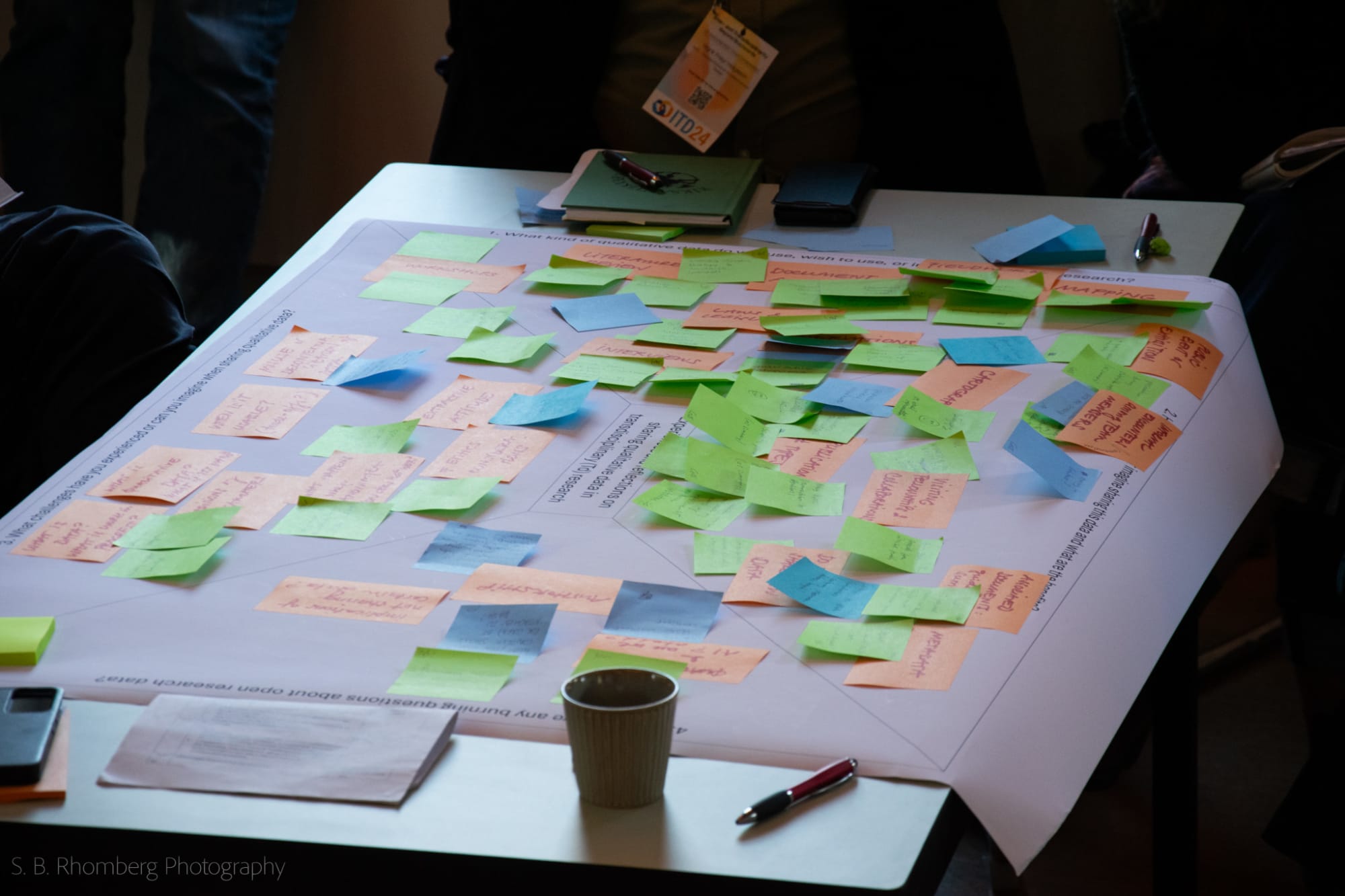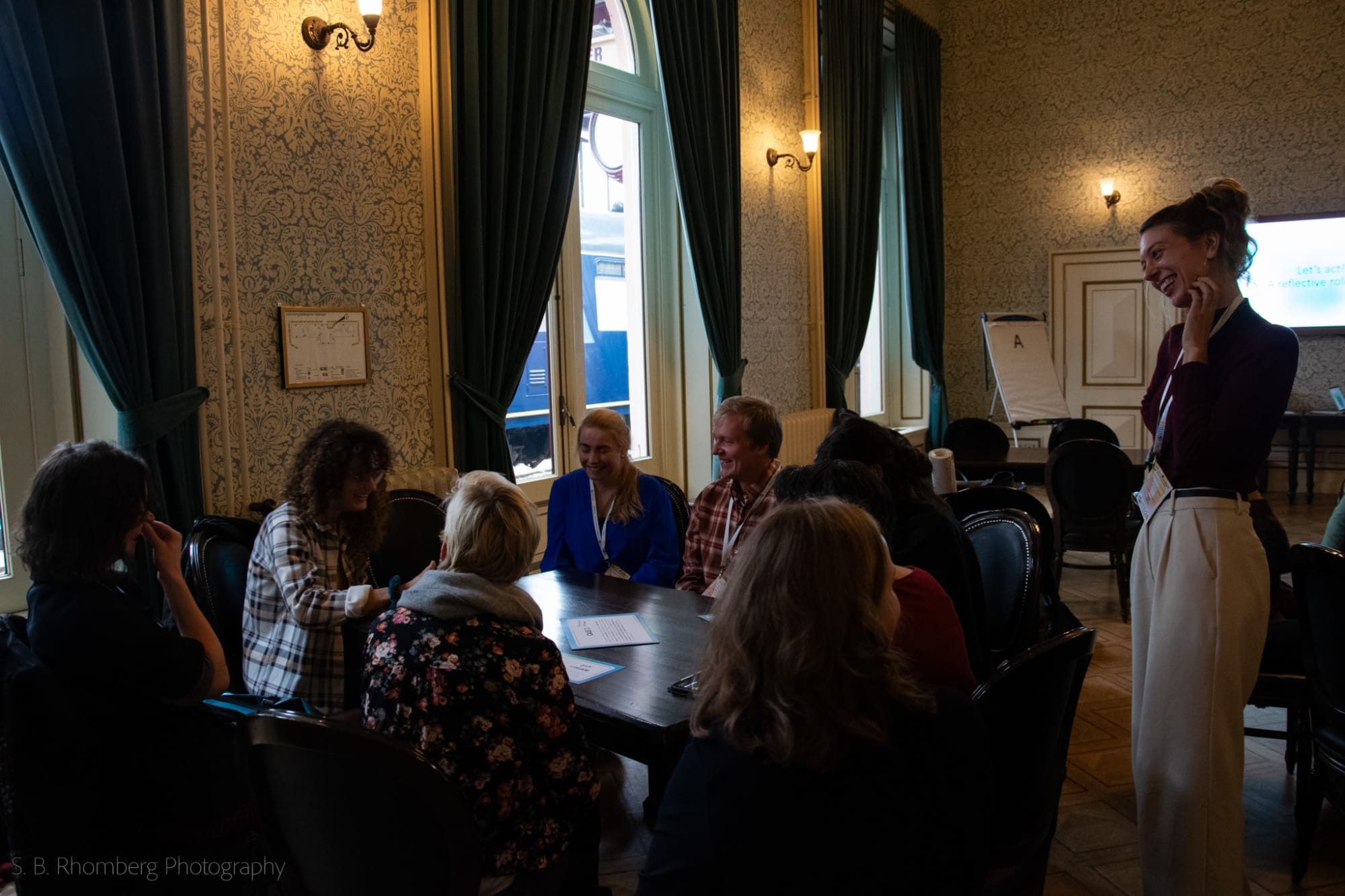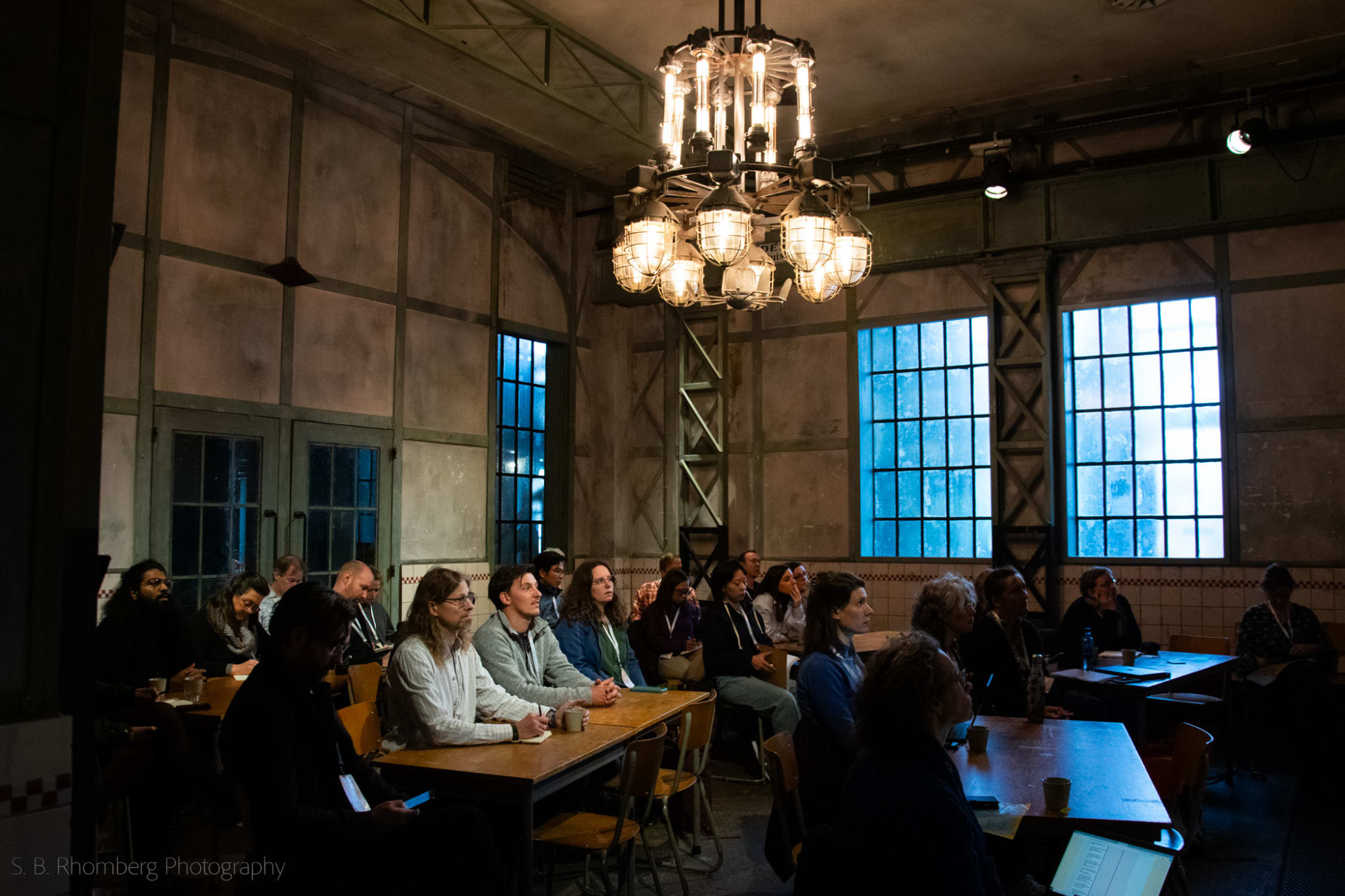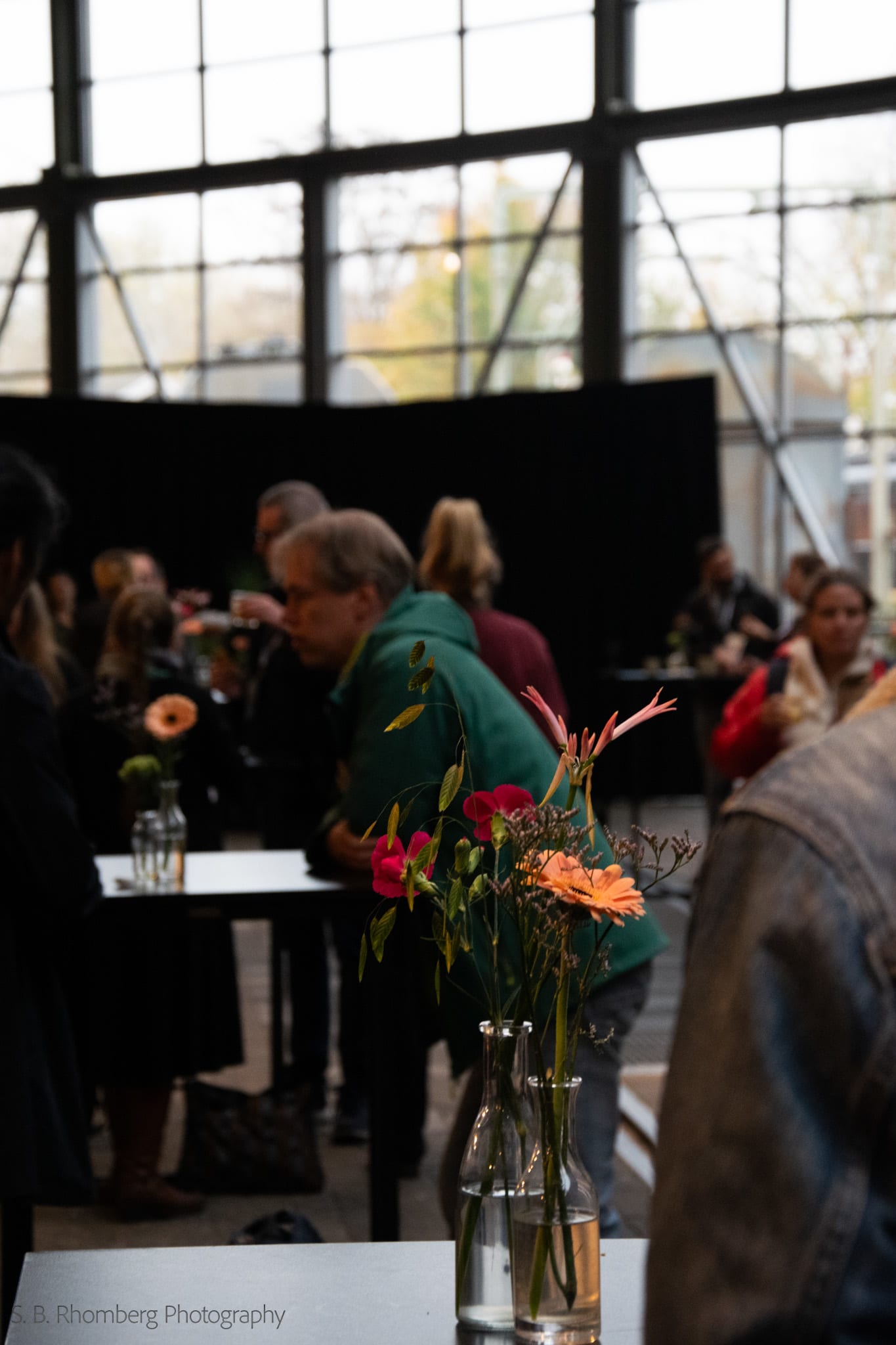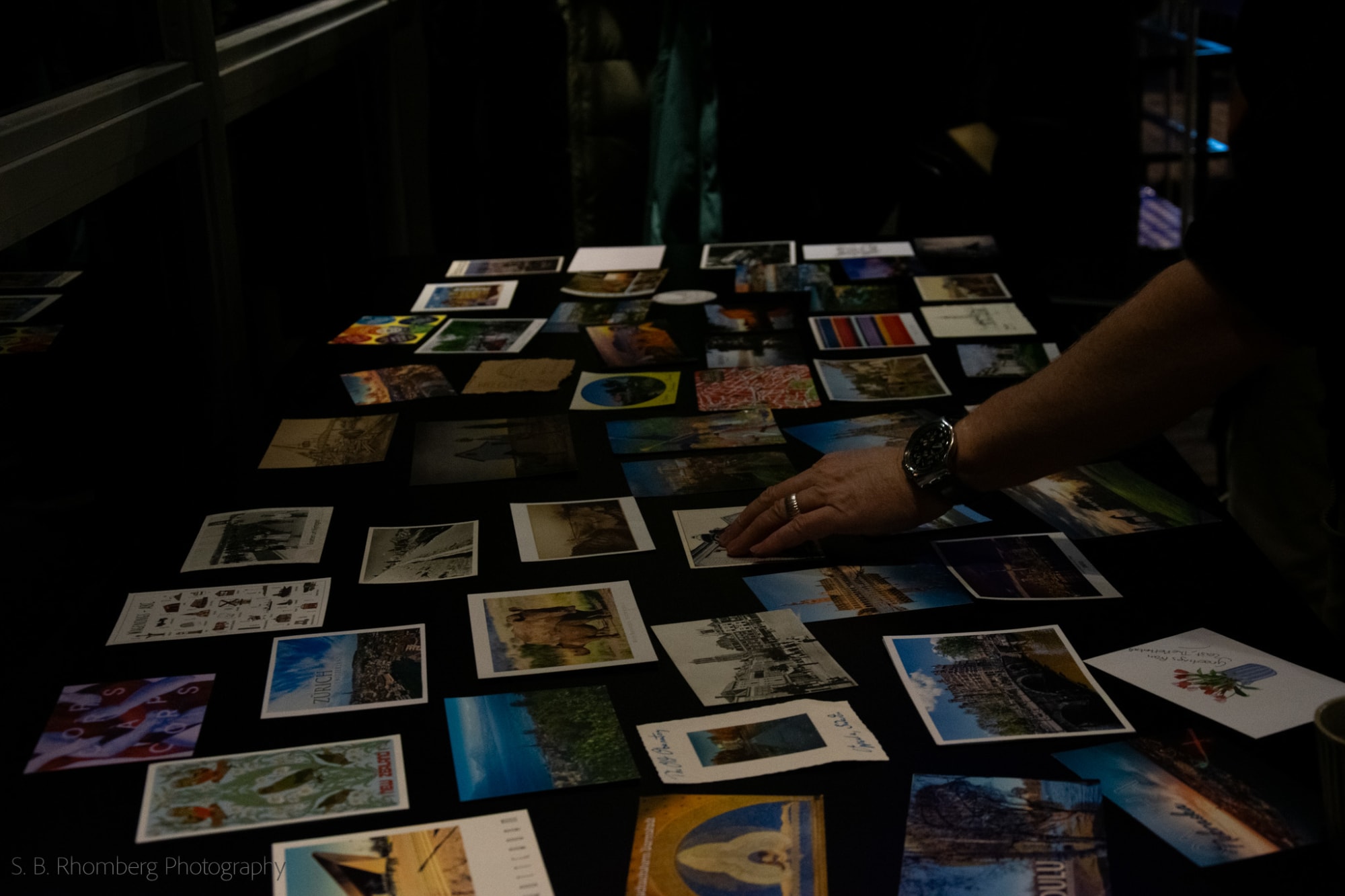ITD24 Inter- and Transdisciplinary Beyond Buzzwords
Educational Pathways for Sustainable Reserach Collaborations
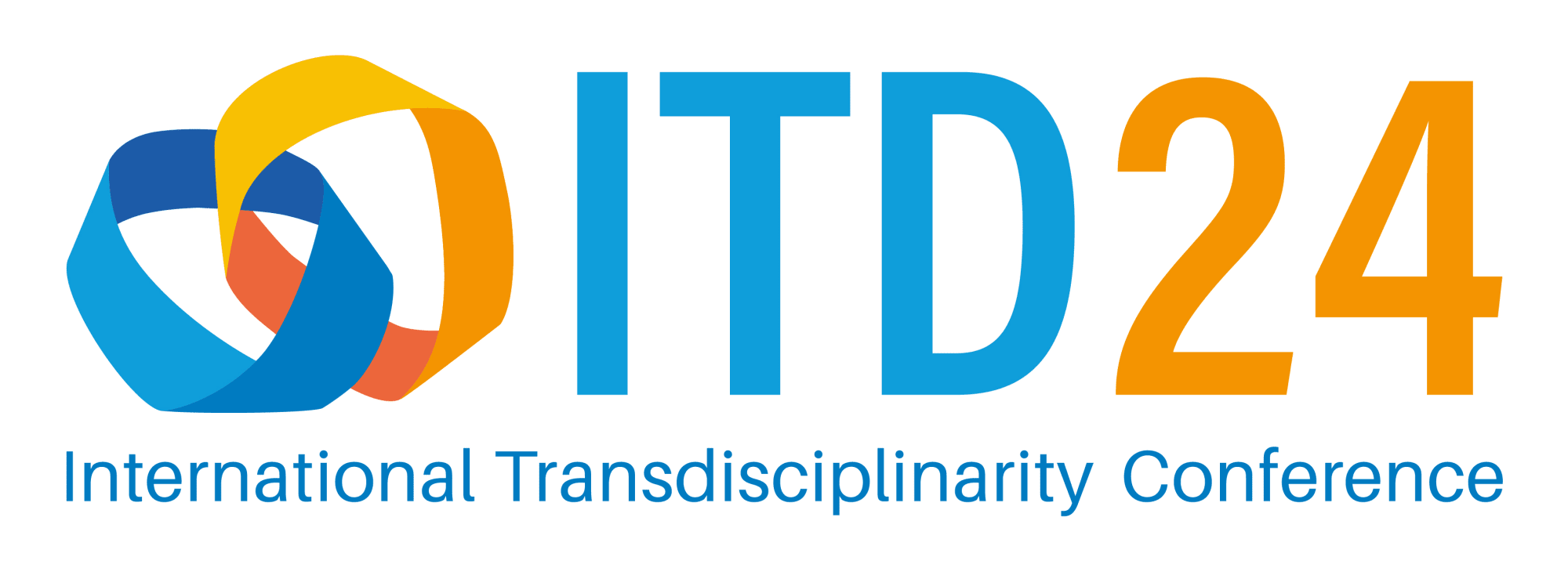
Context
This conference aims to empower and equip individuals and groups, including researchers, educators, trainers, facilitators, and coaches to effectively address today’s polycrises. In the context of inter- and transdisciplinary boundary-crossing, peer-to-peer training and education is key, not only within higher education establishments and research institutions, but also across societal and industrial partners. Once empowered and equipped, we believe researchers, practitioners, and organizations will be better able to build and sustain futureproof inter- and transdisciplinary research collaborations. In light of this mission statement, and based on this Call for Contributions, we have formulated three ‘streams’ that help structure the conference and maximize opportunities for all: the fundamental level of theories, concepts, and processes; the practical level of building capacity; and the specific angle of education that forms the core of all capacity-building endeavors.
Location Railway museum
The Railway Museum illustrates the vital link between the railways and society at large. We preserve and manage railway-related heritage in the Netherlands. Through our stories aimed at a wide audience, we reveal the significance of this heritage in connection with technological, economic and social development in the past, present and future.
As a cultural organisation, our place is in the midst of society. We tell our story and manage our collection in a way that is relevant and authentic. We are open and inquisitive in everything we do. We offer our visitors both hospitality and inspiration. We connect our activities to our function as a museum. Further information
Plenary sessions
Plenary 1: Keynote - Mieke Bal: Inter-ships: On Being In-Between in Cultural, Disciplinary, Subjective and Medial Encounters (Response: Frédéric Darbellay)
The differences between cultures and media, which I take for granted, are less important to me than the way inter-connect. This is why I use the preposition “inter-” rather than “trans-“. I have coined the generalizing encountering way of merging that never leaves the items involved as they were before. Hence, transformation But I keep the preposition “trans-” in mind for the idea of transgression: overstepping boundaries. For, all transgressions of boundaries. The result of this combination of encountering and transgressing can interdisciplinary analyses and practices, whether done by scholars or by artists. An instructive artistic example Nalini Malani, one of the most productive creators of politically powerful, activating art. She makes her viewers are by the experience of her work. And the thinking propels advances, ameliorations; hence, progress. Activating, result of such interships. Between Asia and Europe, Malani blends culturally specific items, such as myths, and traditions. None of these remain the same. One intership will always impact on the previous situation. practical work. I will argue for interdisciplinarity in scholarship and skills in particular in order to advocate importance, academic and otherwise, of leaving dogmatic methodologies behind, not necessarily rejecting them dominant, in favour of the enriching potential of inter-ships that enable the participation of creativity in what we know. Mieke Bal is a cultural theorist, critic, video artist, and curator. She has published over 40 books. Her analysis in the Humanities and Social Sciences is expressed in what she has termed “cultural analysis” concepts”. Frédéric Darbellay is professor in Inter- and Transdisciplinary Studies at the University of Geneva the Inter- and Transdisciplinarity Unit at the Center for Children’s Rights Studies (CIDE) and the CIDE Deputy Video replay: https://youtu.be/LGzbn1sDrMI
Plenary 2: Plenary - Panel with Rick Szostak on Commonalities and Divergences Transdisciplinary Thought
A global network of scholars of interdisciplinarity and transdisciplinarity has strengthened in recent decades. plenary is to take stock of areas of emerging consensus around the nature of inter/transdisciplinarity and transdisciplinary research and teaching, and areas in which important differences in point of view can attention will be paid to regional differences in these topics. The panelists have each been longtime contributors and global networking. Rick Szostak joined the Department of Economics at the University of Alberta in 1985. Dean in the Faculty of Arts from 2002 to 2005, was President of the Association of Academic Staff at the 1995 to 1996, and President of the Confederation of Alberta Faculty Associations from 1996 to 1998. His B.PhD from Northwestern University. He was Chair of the Department from July 1, 2017 to 2022. Szostak’s research fields of economic history, world history, methodology, history of technology, ethics, study of science, knowledge studies, and especially the theory and practice of interdisciplinarity. PD Dr. Bianca Vienni Baptista is Privatdozent Environmental Systems Science of ETH Zürich. Her research is focused around Inter- and transdisciplinary knowledge cultures, Transdisciplinary research for energy transitions, participatory modelling, Interdisciplinary institutionlising processes, Research policy and evaluation of inter- and transdisciplinary research, Qualitative and Integrative teaching and learning. Frédéric Darbellay is professor in Inter- and Transdisciplinary Studies Geneva (Switzerland), Head of the Inter- and Transdisciplinarity Unit at the Center for Children’s Rights Studies Deputy Director. Iris van der Tuin is professor in Theory of Cultural Inquiry at Utrecht University (Department Religious Studies). She is also Utrecht University Dean of Interdisciplinary Education and vice-dean for undergraduate the Faculty of Humanities.
Video replay: https://youtu.be/AoJQu6SAj_o
Plenary 3: Decolonial Perspectives on Interdisciplinarity panel
Inter- and trans-disciplinarity tends to take as its point of departure the disciplinary structures of the Euro-what if we began elsewhere? This panel introduces Indigenous and non-European contexts and epistemologies disciplinarity takes different forms, and where approaches to learning and what counts as knowledge are not the parameters of the research university. In what ways can Indigenous ways of knowing and acting in the culturally responsive research? How can attention to embodied practice reveal undisciplinary possibilities? What and educational institutions might be posed by a decolonial commitment? And how can such a commitment “decolonization” becoming yet another buzzword? Panelists: Bagele Chilisa is Professor of the Post Evaluation program at the University of Botswana. Her research interests include context and culturally evaluation methodologies, Indigenous knowledge systems, and the design and evaluation of context interventions in Low and Middle Income Countries. Her book, Indigenous Research Methodologies (Sage second edition and offers a crucial foundation in Indigenous methods, methodologies, and epistemologies. contributes to the Responsive Research Collective, one of the initiating members of the ITD Alliance. Lily professor in the Department of Theatre, Dance, and Performance Studies at Tufts University in Massachusetts. teaching live at the intersection of critical Indigenous studies, gender and sexuality studies, and performance book, Critical Dreaming: Feminist Performances Across the Indigenous Americas (NYU Press 2025), argues transformative performance practice, particularly in the works of Indigenous-centered and feminist artists America. In addition to researching and teaching, Dr Mengesha is a director and dramaturge. Rolando Vázquez Decolonial Theories and Literatures, with a focus on the Global South, at the department of Literary and Amsterdam School for Cultural Analysis (University of Amsterdam). Professor Vázquez’s work places the question an ethical life at the core of decolonial thought and advocates for the decolonial transformation of cultural and His most recent publication is Vistas of Modernity: Decolonial Aesthesis and the End of the Contemporary Theron Schmidt (facilitator) is an assistant professor in the Department of Media and Culture Studies at committed to modes of research, learning, and making that are collaborative and experiential, alive in responsive to the complex and contested entanglements of diverse bodies, politics, histories, and alliances.
Video replay: https://youtu.be/XiHPY6zTofs
Plenary 4: Conference Closing Plenary- Navigating Uncharted Waters: Pathways Panel with BinBin Pearce
Erika Angarita is a research assistant at Thuenen Institute, the Federal Research Institute for Rural Areas, Forestry Germany, based in Braunschweig. Her inter and transdisciplinary interest include participation in Living Labs systems in Europe, in projects such as Agroecology for Europe (AE4EU) and currently in the European partnership farming systems transition through agroecology Living Labs and Research Infrastructures." Olivier Ejderyan and group leader at FiBL, the Research institute of Organic Agriculture in Frick, Switzerland. His research focuses interplay between the social, technology and nature to construct liveable worlds. He has coordinated transdisciplinary projects on river management, geo-energy and more recently on the role of technology in organic agri-food systems. Guimarães is a Senior Researcher at the Mediterranean Institute for Agriculture, Environment, and Development University of Évora and a member of the Global Change and Sustainability Institute (CHANGE). Her research interactions between humans and nature from a social-ecological perspective. She is actively engaged in the knowledge to inform actions aimed at transforming social-ecological systems. Governance has become a central as many of the challenges she addresses stem from the ways people and institutions interact. In 2016 she started that, after 8 years, still serves as a transdisciplinary problem framing space. In 2021, she co-edited the book Mediterranean Silvopastoral Systems, the first publication to explore the human dimension of these systems serves on the leadership board of the ITD Alliance, she is a member of the executive committee and contributes on Integration Experts and Expertise. BinBin Jiang Pearce is an assistant professor for policy analysis and design Technology, in the Faculty of Technology, Policy and Management, based in the Netherlands. Her research interests participation processes in the energy transition, policy design for the energy transition, collaborative decision development, joint problem framing processes, and developing curriculum by integrating systems and design is an expert in theories, methods and tools for understanding and navigating transdisciplinary research processes. director of td-net of the Swiss Academies of Arts and Sciences and is co-director of TdLab of the Department Systems Science at ETH Zurich. In his research he studies transdisciplinary projects in the field of sustainable explores tools to support knowledge co-production.
Our diverse panel, including researchers at different stages of their careers, discusses the realities of living within an ITD field, highlighting the delicate balance between creativity and risk. The discussion will extend exploring pathways within and outside the traditional academic structure. Panellists will share unique comprehensive understanding of the multifaceted ITD career trajectory, and address crucial questions about integration and creating more positions for researchers within academia and at the science-society interface. valuable insights into the evolving landscape of ITD scholarship and contribute to shaping the future efforts Don’t miss this opportunity to understand the challenges and possibilities within the ITD career path and conversation about its transformative potential. The audience, thus you, will be involved interactively, thus perspective too. BinBin Pearce is an assistant professor for policy analysis and design at Delft University of of Technology, Policy and Management, based in the Netherlands. Her transdisciplinary research interests include processes and policy design for the energy transition, collaborative decision making for sustainable development, framing processes and developing curriculum based on integrated systems and design thinking. She the Horizon 2020 EU-funded project ENCLUDE (Energy Citizens for Inclusive Decarbonization).
Video replay: https://youtu.be/LeSri1PK_6w
Session Overview
Here you find an overview over the sessions held during the ITD24. One list is structed by the names of the contributors, one by the sessions titles. In addition, there is a first list on the posters contributed to the conference. You find the links to the sessions abstracts below.
Organisers
ITD Allaince - Global Alliance for Inter- and Transdisciplinarity
td-net, swiss academies of arts and sciences
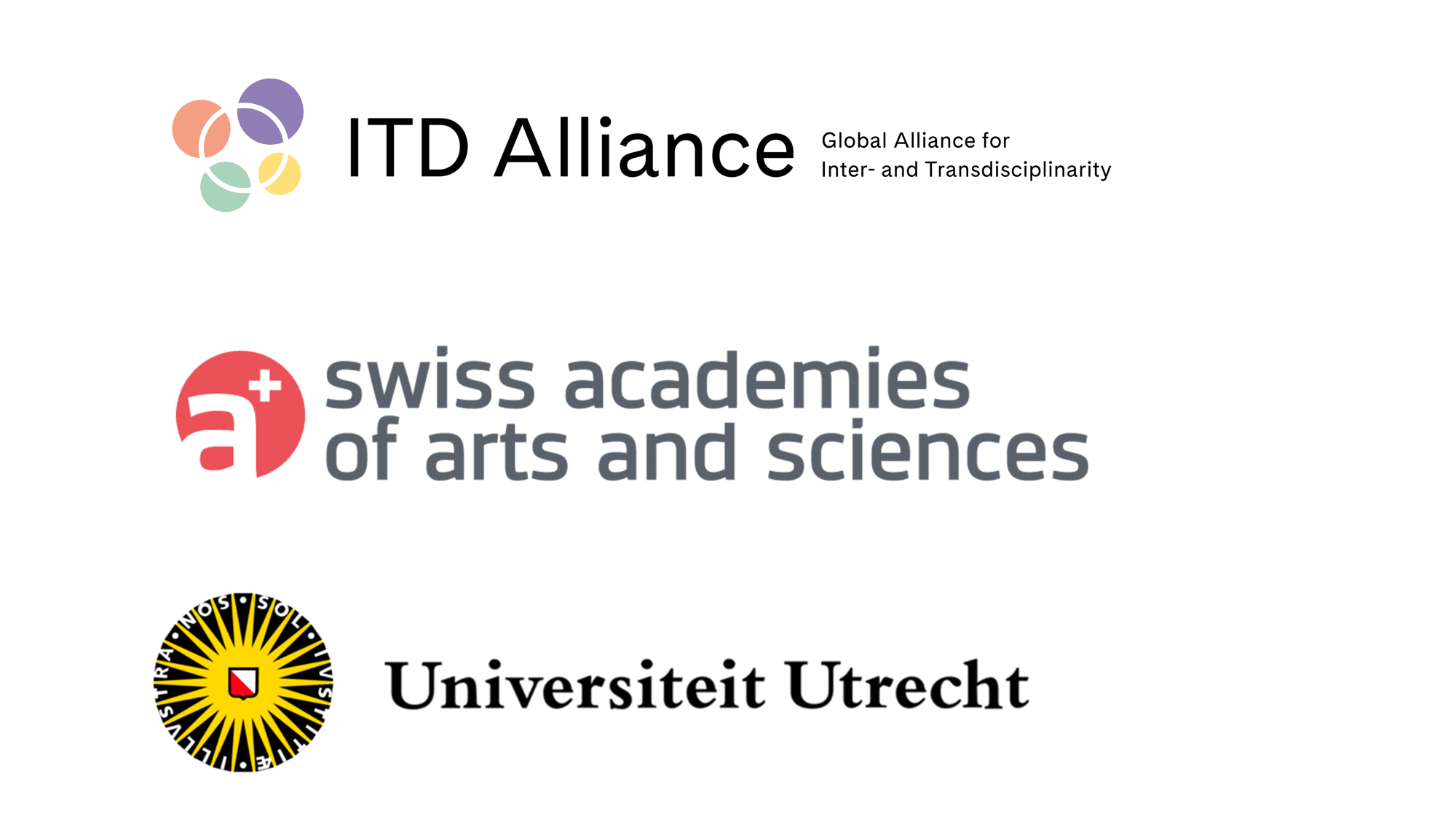
Impressions
Pictures of the conference were made by Samuel Basil Rhomberg and Caspar Schoevaars



